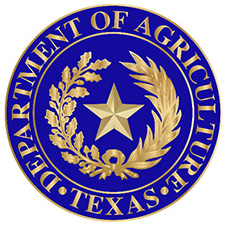Vilsack taps USDA fund as House GOP tries to block his access
Declaring it was “an appropriate utilization” of resources, Agriculture Secretary Tom Vilsack allotted nearly $2.7 billion in USDA funds for school meals, food banks, and domestic fertilizer production. House Republicans are trying to block Vilsack’s access to the $30 billion account that was the source of the funding.
EPA moves to limit pesticides near 27 species in peril
The Biden administration said it would protect 27 endangered and threatened species, including some pollinators, through targeted limits on the use of pesticides in their habitats. The EPA proposal focused on species that have small populations and a limited range and that are highly susceptible to environmental stresses.
TODAY’S QUICK HITS
Pork will cost less: For the fourth month in a row, the USDA lowered its forecast of grocery price inflation, now pegged at 5.9 percent, and said pork prices would fall 2.1 percent, the first food category with lower prices than in 2022. (USDA)
USDA eyes HPAI: Bird flu has dwindled as a threat to U.S. poultry flocks, but because it remains prevalent among wild birds the USDA transferred $502 million to its animal-health agency so it will be ready to act if HPAI surges. (USDA)
Restore war-damaged farmland: Two UN agencies launched a project to clear mines from cropland owned by smallholder farmers in Ukraine with the twin goals of increasing local agricultural production and reducing the need for rural food aid. (FAO/WFP)
Destructive snail: Florida agriculture officials declared a quarantine area in Miramar, north of Miami, following the discovery of one Giant African land snail, an invasive species that consumes more than 500 different types of plants and may carry a parasite that causes meningitis in people. (NPR)
Peach crop heavily damaged: A warm winter followed by March freezes wreaked havoc with this year’s peach crop in Georgia, with some experts saying the harvest may be only 5 percent of normal. (Washington Post)
ON THE CALENDAR
Monday
During a trip to the Minneapolis area, Agriculture Secretary Tom Vilsack is to announce “significant new funding” to expand the availability of biofuels across the country.
House Agriculture chairman Glenn Thompson and Zippy Duvall, president of the American Farm Bureau Federation, take part in a farm bill listening session, 3 p.m. ET, Lebanon, Tennessee. The listening session is part of a two-day tour of farms and agricultural businesses in middle Tennessee that concludes on Tuesday.
USDA and state agriculture officials announce a five-year strategy to reduce the impact of the invasive spotted lanternfly on U.S. agriculture and the environment, noon, Downington, Pennsylvania.
Farm Credit Council holds FCC Learning Conference, through Wednesday, Charlotte, North Carolina.
USDA releases weekly Crop Progress report, 4 p.m. ET.
Tuesday
Agriculture Secretary Tom Vilsack and Senate Agriculture chairwoman Debbie Stabenow visit a local market in Detroit and a summer food site for school-age children in Flint, Michigan.
Purdue University’s college of agriculture holds annual Weed Science Field Day, 8:30 a.m. ET, Lafayette, Indiana.
California Department of Food and Agriculture holds webinar for pork producers to review requirements for sow housing under the Proposition 12 animal welfare law, 11 a.m. ET.
Wednesday
The Food Research and Action Center releases an annual report on student participation in school lunch and breakfast programs in large school districts.
Thursday
International Grains Council releases Grain Market Report, London.
USDA releases quarterly Hogs and Pigs report, 3 p.m. ET.
Friday
USDA releases annual Acreage and quarterly Grain Stocks reports, noon ET. The Acreage report, based on a survey of tens of thousands of growers, is the most accurate gauge yet of plantings of crops for harvest this year. In March, at the start of the planting season, farmers said they would expand plantings of corn, soybeans, and wheat, the three most widely grown field crops, by 3 percent. At that level, the United States could reap its largest soybean crop ever and the second largest corn crop.
National Weather Service issues Monthly Drought Outlook, 3 p.m. ET.
USDA releases monthly Agricultural Prices report, 3 p.m. ET.
Saturday
California’s Proposition 12, called the strongest animal welfare law in the nation, takes effect after years of court challenges. The voter-approved legislation requires farmers to give egg-laying hens, veal calves, and breeding sows more room and bars the sale of pork produced in other states that do not meet California’s standards. State agriculture officials have announced a six-month grace period, until Jan. 1, for compliance with the regulation on meat sales.
The UN Food and Agriculture Organization holds its 43rd annual FAO Conference, through July 7, Rome.











